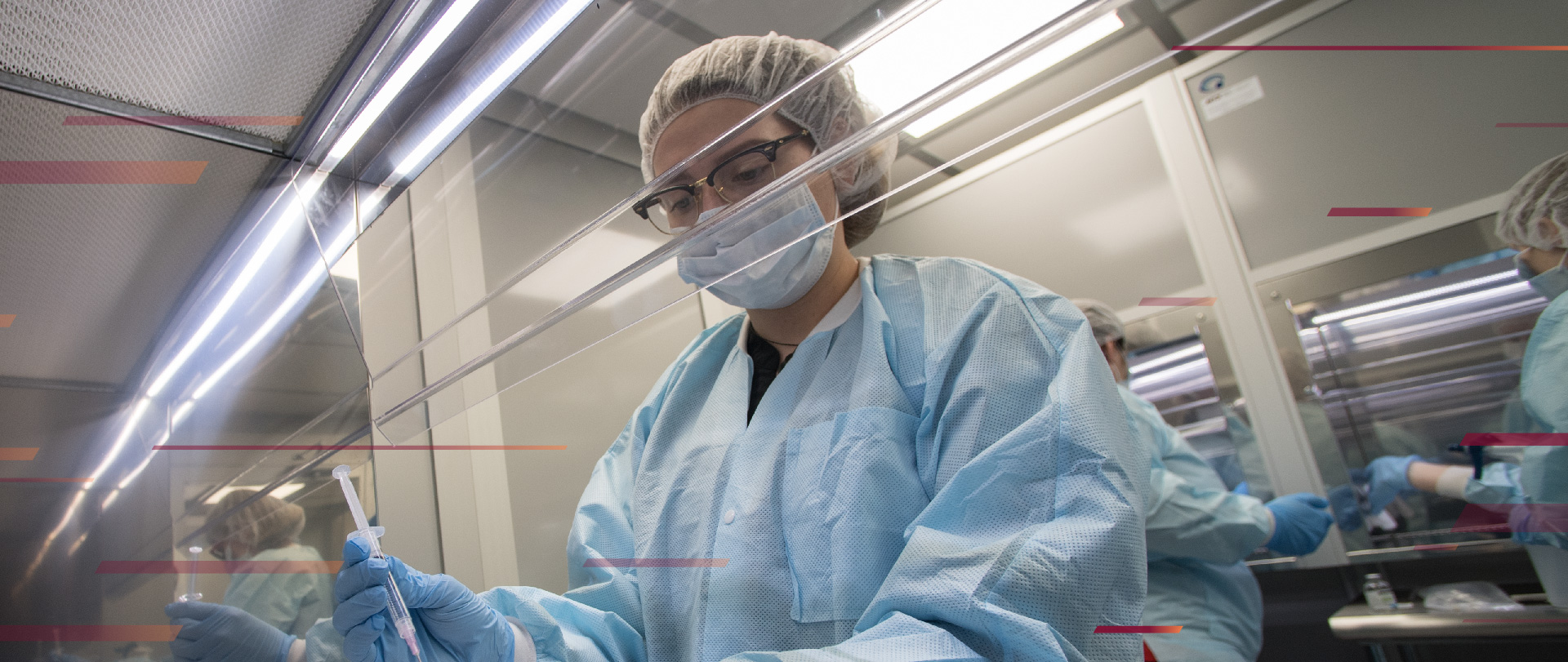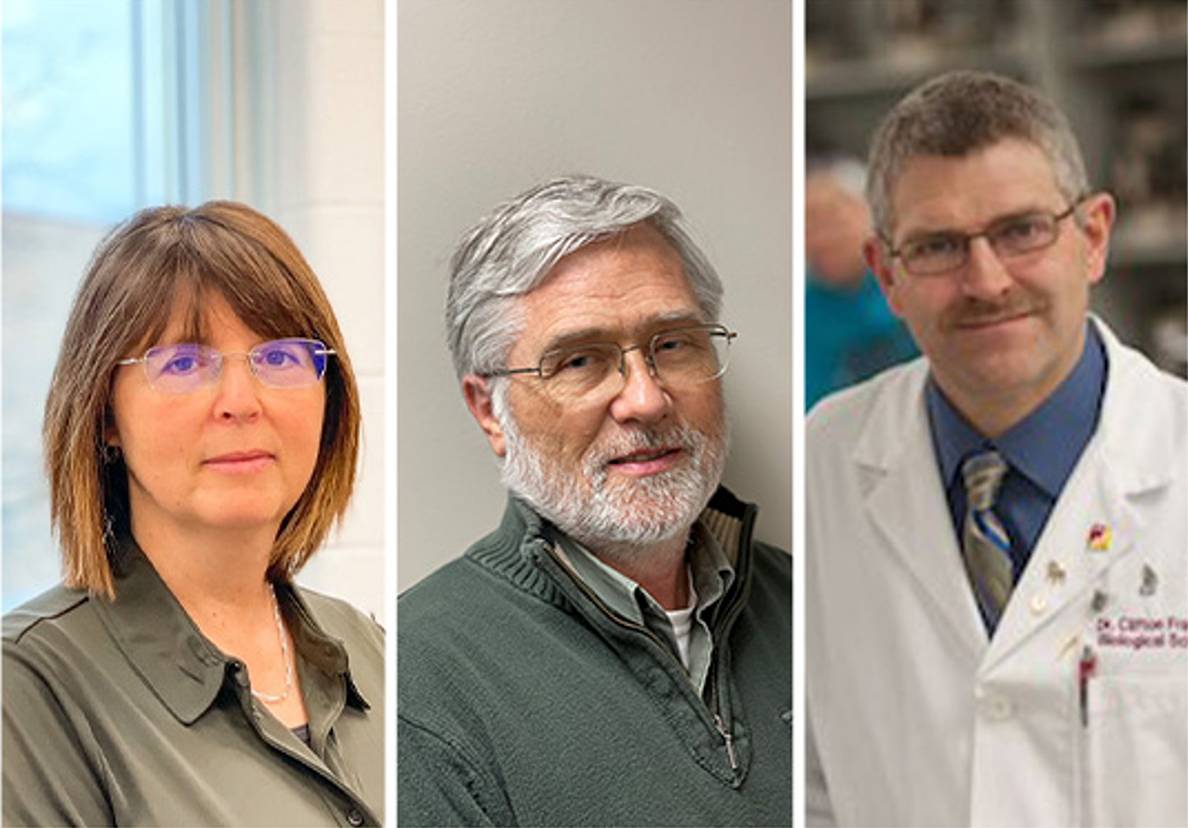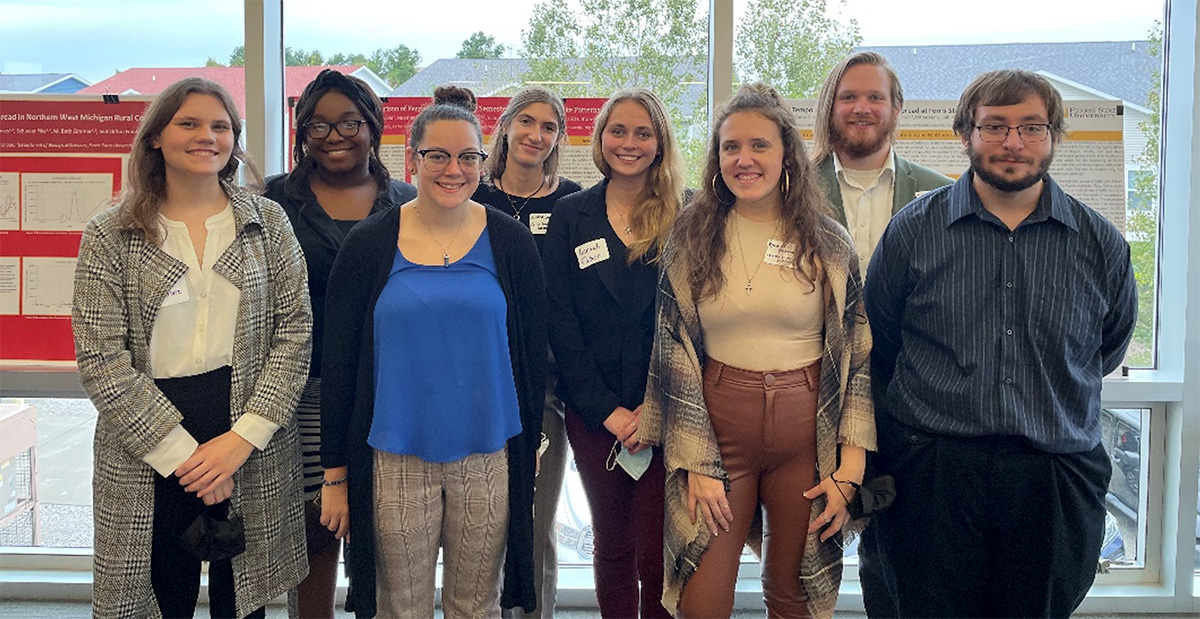Office of Research and Sponsored Programs
(231) 591-2547
[email protected]

The Shimadzu Core Laboratory (SCL), a campus-wide resource based in the College of Arts, Sciences and Education (CASE), was one of 20 labs across the state selected to receive a SARS-CoV-2 Epidemiology Wastewater Evaluation and Reporting (SEWER) grant. This 2-year, $1.8M grant to Ferris is funded by the Michigan Departments of Health and Human Services (MDHHS) and Environment, Great Lakes and Energy (EGLE).
Along with local health departments, the SCL will participate in the MiNET (Michigan Network for Environment and Technology). This network, the first of its kind in the world, uses wastewater analysis data to coordinate public health responses to infectious disease at a statewide level.

Left to right: Dr. Beth Zimmer, Dr. Sky Pike and Dr. Cliff Franklund
At Ferris, the grant is administered by Dr. Sky Pike (Director of SCL and Associate Professor, Biological Sciences), Dr. Beth Zimmer (Professor and Chair, Biological Sciences), and Dr. Cliff Franklund (Professor of Microbiology and a wastewater testing expert).
The SCL analyzes wastewater samples for COVID and variants from five cities and 30 sampling sites in District Health Department 10 and one city with three sampling sites in the Central Michigan Health Department on a weekly basis. At least 20 Ferris students, both former and current, are helping to carry out the project. Kassidy Vredeveld (’20, CASE Biotechnology), the lead project technician, is working with students to process the wastewater samples and harvest viral RNA using the latest digital PCR technologies. The results are then uploaded to a data portal managed at the state level.

Left to right: Heather LeFaivre, Myree Graves, Haley Berg, Juliana Carey, Hannah Faber, Kassidy Vredeveld, Chandler Hendrickson, Malachi Lapham.
This SARS-CoV-2 data plays a critical role in targeting messaging to specific regions and to advise further clinical testing, including the main campus of Ferris. The cutting-edge laboratory experience that students gain through participating in the SEWER project is in high demand among employers and makes Ferris students highly marketable for jobs as well as post-graduate training programs.